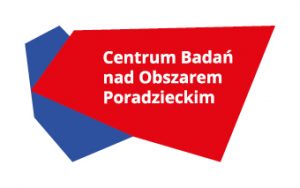Aktualna strona Wydziału Historii: https://historia.uwb.edu.pl/
Aktualna strona Wydziału Stosunków Międzynarodowych: https://sm.uwb.edu.pl/

Date: May 11-13, 2022
Place: Białystok
Organizers:
Centre of Post-Soviet Area Studies
Chair of International Relations (Faculty of History and International Relations, University of Białystok)
Assumptions
The year 1991 brought a geopolitical, economic and cultural earthquake, and the subsequent decades demonstrated that it was just the beginning of a fascinating period, in which the dynamic of changes does not slow down; on the contrary, in post-Soviet countries transformations of models are incessantly in progress: economic development, leadership, power legitimization and political systems. The transformations have been equally intense in the sphere of foreign policy and safety of both the Russian Federation as well as the other post-Soviet states. Within its framework key problems turned out to be those of para-states, defrosting armed conflicts or permanent turbulences of the area. The game on the territory of Eurasia was entered by new state actors (EU, USA, China, Turkey, Iran, India, South Korea, Gulf countries, Japan) and non-state actors of international relations, enabling the post-Soviet states to reinterprete their relations with the West, the Far and the Middle East, and also to implement multidimensional reintegration projects as well as new vectors of raw material diplomacy. From the perspective of thirty years it is also important to note that what deserves special attentions in post-Soviet area studies is social and identity issues, as well as connected therewith demographic and cultural transformations, and the inherent problem of immigration.
We suggest that the main issues discussed at the conference include:
We realize that the thirty years of the post-Soviet area requires multidimensional studies, sum-ups and discussions, to which we cordially invite you. We hope that the conference will not only allow us to maintain the long tradition of Eastern studies carried out at the University of Białystok, but will also open new research perspectives. It will be a field for hot disputes and an opportunity to popularize the result of Eastern studies conducted by both Polish and foreign academic centres. The conference is planned as a stationary (offline) event on 11-13 May 2022. However, the organizers reserve the right to change the formula into hybrid, if the epidemic situation exacerbates. A tentative conference agenda will be attached.
Dates and organizational issues
Schedule:
By April 15, 2022: deadline for registration and abstract (1-2 pages) submission
By April 20, 2022: conference fee B
By April 20, 2022: accommodation fee deadline (on condition of confirmed reservation)
By April 30, 2022: preparation of the conference program
https://forms.gle/C2WNfFgq8otfgc919
W ramach naszego serwisu www stosujemy pliki cookies zapisywane na urządzeniu użytkownika w celu dostosowania zachowania serwisu do indywidualnych preferencji użytkownika oraz w celach statystycznych. Użytkownik ma możliwość samodzielnej zmiany ustawień dotyczących cookies w swojej przeglądarce internetowej. Więcej informacji można znaleźć w Polityce Prywatności Uniwersytetu w Białymstoku. Korzystając ze strony wyrażają Państwo zgodę na używanie plików cookies, zgodnie z ustawieniami przeglądarki.